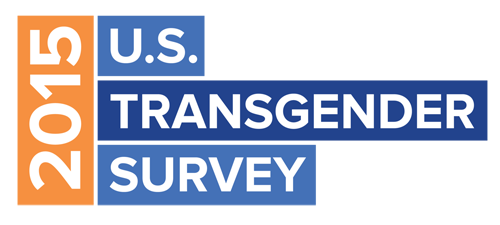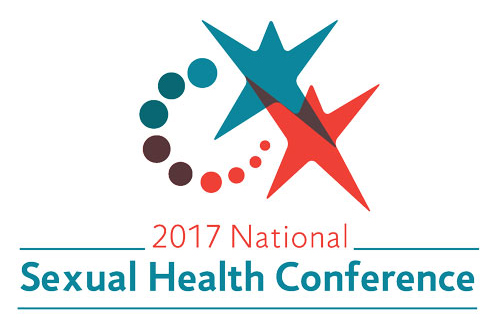
DECEMBER 2016 – JANUARY 2017
Feature: State Every Student Succeeds Act Plans that Support Student health and Wellness: A Framework for Action
The Every Student Succeeds Act (ESSA) has been in effect since 2015. This document outlines the progress that has been made, as well as tips for how educators and activists can work with state-level policy makers to develop state ESSA plans. The document defines ESSA and provides information on engaging stakeholders, implementing a state accountability system to support the health and learning connection, and strategies for ensuring health and wellness are integrated into standards and assessments in the classroom. This framework also contains information on how states can transfer funding to strengthen ESSA Health and Wellness programming. Review the framework and find out more.
![]()
RESOURCES
2015 Transgender Survey

Nearly 28,000 youth and adults have taken the U.S. Trans Survey (USTS) sponsored by the National Center for Transgender Equality (NCTE). This report is a follow up to the 2008-2009 National Transgender Discrimination Survey and it provides a look at the experiences of transgender people from a diverse background of education, employment, family life, health, housing and status within the criminal justice system. This report details experiences that transgender individuals have with violence, discrimination and harassment. Among the categories of questions, several included those about HIV, psychological stress, suicide and experience in schools. Read the 2015 summary and report. The report is available in both English and Spanish.
Factsheet-Publically Funded Family Planning Services in the United States
The Guttmacher Institute has released a new factsheet focused on contraceptive funding in the U.S. This factsheet contains statistics on the number of women who use contraceptives and the public health initiatives that provide such care. The factsheet also looks at the impact of the Affordable Care Act on implementing publically funded contraceptive care. Download the factsheet and read more.
2015 National School Climate Survey

GLESEN has released a report on the experiences of LGBTQ youth in schools, focusing on the challenges that they face and the resources that support their well-being. Over 10,000 LGBTQ youth from every state, including D.C., have participated in this survey. The experiences on which the youth were asked to report included: hearing biased language, experiences of harassment or assault, anti-LGBTQ discrimination and the effects of a hostile school climate on educational outcomes. Broadly, the report found that school-based support is related to safer and more inclusive school climates. Read a summary of the findings and access the full report.
Digital Security Helpline
The Digital Security Helpline works with organizations, administrations and schools to help protect their platforms online. They provide rapid-response emergency assistance in the event of a hacking situation and can help improve digital security practices. Services are free and they offer direct technical assistance as well as advice. Find out more about how the digital security helpline can improve your districts websites and online presence.
RECENT PUBLICATIONS
Advancing LGBT Health and Well-being 2016: Report of the HHS LGBT Policy Coordinating Committee
The sixth annual report of the Health and Human Services (HHS) LGBT Policy Coordinating Committee features noteworthy accomplishments in the area of improving the health and well-being of the LGBT community over the past year. In addition to recent success this report highlights future steps that the department will take to continue their work and address LGBT disparities in the future. This report includes appendices which provide information on the work that specific HHS divisions and agencies have contributed to this work. Read the report here.
Strategies to Improve Mental Health Care for Children and Adolescents
Recently published by the Agency for Healthcare Research and Quality, this paper examines strategies for assessing the effectiveness and improvement for the implementation and dissemination of ways to improve mental health care for children and adolescents. The study identified 16 specific strategies which were able to improve mental health, some of them more effective than others. While there was some inconsistency in the findings, researchers did find that strategies which combined multiple approaches to mental healthcare such as clinical and educational were more effective than those which only focused on one.Read the paper and find out more.
CAPACITY BUILDING AND PROFESSIONAL DEVELOPMENT
2017 Emerging Leaders Conference

The Girls Educational and Mentoring Service (GEMS) is holding their 2017 Emerging Leaders Conference April 24-27 in Bedford, Massachusetts. This conference is aimed at survivors of sexual assault between the ages of 21-30 as well as educators and mentors who want to further their leadership skills and work with survivors. This conference hosts a variety of workshops including: leadership development, entrepreneurship and intrapreneurship, advocacy and media training, direct services and mentoring work, managing trauma and self-care, as well as career and technology exploration. The application to attend or nominate someone to speak is January 20th. Apply to register and find out more!
Family Life And Sexual Health Training
FLASH is a free online K-12 sexuality education curriculum developed by Public Health Seattle King County. This training is available through the Washington Department of Education Office of the Superintendent and is free to register. The training, aimed at the training of educators is interactive and research-based and designed to equip attendees with knowledge and skills on the foundations of HIV and sexual health instruction, key concepts to use when teaching the FLASH curriculum, and best practices in methodology for teaching key topic such as puberty, sexual violence prevention and LGBT issues. Trainings run now through March 13 2017. Find out more and register here.
2017 National Sexual Health Conference
Registration is now open for the National Sexual Health Conference taking place July 6-8th in Denver, Colorado. This conference will address key topics in the field of sexual health education including: social determinants of health, clinical care, LGBTQ health, reproductive health, STD/HIV prevention, sexuality, mental health and more. This conference is geared toward a variety of professionals and educators in the sexual health field including: health care providers, advocates, researchers, educators, mental health and substance use care providers, outreach workers, and providers of public and reproductive health. Read abstracts, view content from previous conferences, find out more about the exhibitors and register.
Society for Public Health Conference
Registration is now open for SOPHE’s 68th annual conference in Denver Colorado March 30- April 1 2017. This year’s theme will be centered on increasing public health service accessibility. This conference is intended for professionals in schools, health care, academia and community health organizations. Register for the conference and find out more about exhibitors, workshops, speakers.
ANNOUNCEMENTS
With Better Data: A Foundation for Stronger HIV Prevention
The most recent statement from the Director of Act Against AIDS highlights the importance of high-quality data as it relates to HIV/AIDS response. The statement provides additional information on the HIV Surveillance report and discusses the history of CDC’s work to prevent HIV/AIDS since the early days of the epidemic. The publication discusses the National HIV/AIDS Strategy: Updated to 2020 and outlines the trends of HIV/AIDS diagnosis currently. Read the statement from the director and find out more about the HIV/AIDS Surveillance Report.
Youth Online YRBS Update
The Youth Online tool allows educators and trainers to analyze Youth Risk Behavior Surveillance Systems (YRBS) data from 1991-2015. This update now allows access to national, state, and local data on two aspects of sexual orientation, sexual identity and sex of sexual contacts. Utilize the new Youth Online Update and find out more.
This document was made possible by the Centers for Disease Control and Prevention, Division of Adolescent and School Health (CDC-DASH) under cooperative agreement 1UP87PS004154. The contents do not necessarily represent the official views of the Centers for Disease Control and Prevention. ![]()
To submit an article, announcement, or resource for the School Health Equity Newsletter, please email Lauren Ainsworth at lauren@advocatesforyouth.org
Was this e-mail forwarded to you? If so and you would like to subscribe to Advocates for Youth’s mailing list, please visit www.advocatesforyouth.org/get-involved/sign-up-for-email-alerts.
